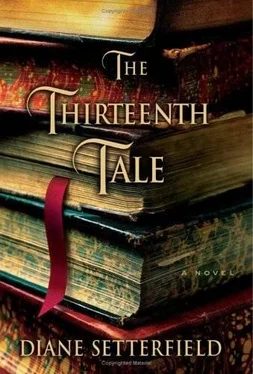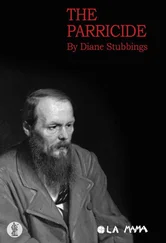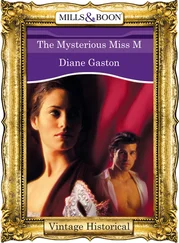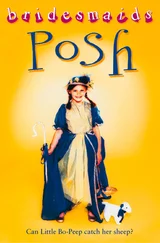And if, and if, and if. Such thinking is pointless. Isabelle was as Isabelle was, and that is all there is to say about the matter.
The infant, a white scrap of fury, was motherless. And at the beginning, to all intents and purposes, it looked like she'd be fatherless, too. For her father, George Angelfield, fell into a decline. He locked himself in the library and refused point-blank to come out. This might seem excessive; ten years of marriage is usually enough to cure marital affection, but Angelfield was an odd fellow, and there it was. He had loved his wife-his ill-tempered, lazy, selfish and pretty Mathilde. He had loved her more than he loved his horses, more even than his dog. As for their son, Charlie, a boy of nine, it never entered George's head to wonder whether he loved him more or less than Mathilde, for the fact was, he never thought of Charlie at all.
Bereaved, driven half mad with grief, George Angelfield sat all day in the library, eating nothing, seeing no one. And he spent his nights there, too, on the daybed, not sleeping but staring red-eyed at the moon. This went on for months. His pale cheeks became paler; he grew thin; he stopped speaking. Specialists were called from London. The vicar came and left again. The dog pined away from want of affection, and when it died, George Angelfield barely noticed.
In the end the Missus got fed up with it all. She picked up baby Isabelle from the crib in the nursery and took her downstairs. She strode past the butler, ignoring his protestations, and went into the library without knocking. Up to the desk she marched, and she plumped the baby down in George Angelfield's arms without a word. Then she turned her back and walked out, slamming the door behind her.
The butler made to go in, thinking to retrieve the infant, but the Missus raised her finger and hissed, "Don't you dare!" He was so startled that he obeyed. The household servants gathered outside the library door, looking at one another, not knowing what to do. But the force of the Missus's conviction held them paralyzed, and they did nothing.
It was a long afternoon, and at the end of it one of the underhouse maids ran to the nursery. "He's come out! The master's come out!" At her normal pace and in her normal manner, the Missus came downstairs to hear what had happened.
The servants had stood about in the hall for hours, listening at the door and peeking through the keyhole. At first their master just sat there, looking at the baby, with a dull and perplexed expression on his face. The baby wriggled and gurgled. When George Angelfield was heard cooing and chuckling in response, the servants exchanged looks of astonishment, but they were more astonished later to hear lullabies. The baby slept and there was silence. Her father, the servants reported, did not once take his eyes from his daughter's face. Then she awoke, hungry, and set to crying. Her shrieks rose in intensity and pitch until finally the door was flung open.
There stood my grandfather with his baby in his arms. Seeing his servants standing idly about, he glared at them and his voice boomed out: "Is a baby left to starve in this house?"
From that day on George Angelfield took personal charge of his daughter. He fed her, bathed her and the rest, moved her cot into his room in case she cried of loneliness in the night, fashioned a papoose so that he could take her riding, read to her (business letters, the sports pages and romantic novels), and shared all his thoughts and plans with her. He behaved, in short, as though Isabelle was a sensible, pleasant companion and not a wild and ignorant child.
Perhaps it was her looks that made her father love her. Charlie, the neglected older child, nine years Isabelle 's senior, was his father's son:a lumpen, pasty, carrot-topped boy, with heavy feet and a slow expression. But Isabelle inherited her looks from both her parents. The ginger hair shared by her father and brother was burnished in the girl child to a rich, glossy auburn. In her, the pale Angelfield complexion was stretched over fine French bones. She had the better chin from the father's side, and the better mouth from the mother's. She had Mathilde 's slanting eyes and long lashes, but when they lifted, it was to reveal the astonishing emerald irises that were the emblem of the Angelfields. She was, physically at least, perfection itself.
The household adapted to the unusual state of affairs. They lived with the unspoken agreement to behave as though it were entirely normal for a father to dote on his baby daughter. It was not to be considered unmanly, ungentlemanly or ridiculous that he kept her constantly by him.
But what about Charlie, the baby's brother? He was a slow-witted boy whose mind turned in circles around his few obsessions and preoccupations, but who could not be prevailed upon to learn new ideas or think logically. He ignored the baby and welcomed the changes her arrival introduced to the household. Before Isabelle there had been two parents to whom the Missus might report instances of bad behavior, two parents whose reactions were impossible to foresee. His mother had been an inconsistent disciplinarian; sometimes having him spanked for bad behavior, at other times merely laughing. His father, although stern, was distracted, and the punishments he intended were frequently forgotten. Catching sight of the boy, though, he would have the vague sense that there might be some misdemeanor to correct, and he would spank the child, thinking that if it wasn't actually owed it would do in advance for next time. This taught the boy a good lesson: He stayed out of the way of his father.
With the coming of the baby Isabelle, all this changed. Mamma was gone, and Papa as good as, too busy with his little Isabelle to concern himself with hysterical reports from housemaids about mice roasted with the Sunday joint or pins pressed by malicious hands deep into the soap. Charlie was free to do as he pleased, and what pleased him was removing floorboards at the top of the attic stairs and watching the housemaids tumble down and sprain their ankles.
The Missus could scold, but then she was only the Missus, and in this new, free life he could maim and wound to his heart's content, in the certain knowledge that he would get away with it. Consistent adult behavior is said to be good for children, and consistent neglect certainly suited this child, for in these early years of his semi-orphanhood Charlie Angelfield was as happy as the day is long.
George Angelfield's adoration of his daughter persisted through all the trials a child can inflict on a parent. When she started to talk, he discovered her to be preternaturally gifted, a veritable oracle, and he began to consult her on everything, until the household came to be run according to the caprices of a three-year-old child.
Visitors were rare, and as the household descended from eccentricity into chaos, they became rarer. Then the servants began to complain among themselves. The butler had left before the child was two. Cook put up for a year longer with the irregular mealtimes that the child demanded, then the day came when she, too, handed in her notice. When she left she took the kitchen girl with her, and in the end it was left to the Missus to ensure the provision of cake and jelly at odd hours. The housemaids felt under no obligation to occupy themselves with chores: Not unreasonably they believed that their small salaries barely compensated them for the cuts and bruises, sprained ankles and stomach upsets they incurred owing to Charlie's sadistic experiments. They left and were replaced by a succession of temporary help, none of whom lasted long. Finally even the temporary help was dispensed with.
By the time Isabelle was five the household had shrunk to George Angelfield, the two children, the Missus, the gardener and the gamekeeper. The dog was dead, and the cats, fearful of Charlie, kept out doors, taking refuge in the garden shed when the weather turned cold. If George Angelfield noticed their isolation, their domestic squalor, he did not regret it. He had Isabelle; he was happy.
Читать дальше












